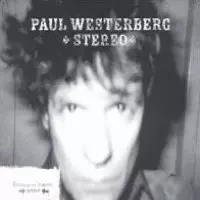Since the break up of the Replacements, one of the world's greatest rock 'n' roll bands, in 1991, Paul Westerberg has been on an interesting journey. At first, he recorded several records considered middling to okay, all in a bid for solo success that never quite came. It was fitting, however, for the former leader of the Mats, a ragtag band who drank into oblivion at shows and wrote many songs about beautiful failures. In 2002, however, Paul came out with two new albums: Stereo and Mono, both released at the same time and recorded at home. The albums received acclaim, and rightly so.
Stereo and Mono suggested that Westerberg was finally embracing the legacy of his old band and recognizing his strengths as a songwriter. Both albums are lo-fi, sound haphazard and at times the songs abruptly end (the acoustic dirge "Dirt to Mud" ends because the tape runs out). But this adds to each album's charm. Westerberg's songs about self-loathing, weird love and the scarred aching girls in the corner of the bar at last sound as messed up as they're supposed to sound. Westerberg ditched professionalism and cut right to these songs' hearts.
The two albums are deliberately different: Stereo is more intimate and features mostly acoustic songs, where Mono (released under the moniker Grandpaboy) is 11 dirty and funny rock 'n' roll songs cut live. The conceit is flawed because it doesn't have as much variety, but it showcases the two sides of himself Paul has always struggled with: the drunk, Keith Richards-worshiping rocker and the poetic, intimate songwriter. By separating the albums, Paul creates an interesting schism.
The songs are, as Paul Westerberg songs, aching and beautiful and...well, fuck it, Westerbergian. "Baby Learns To Crawl," the opener of Stereo backed by accordion, harmonica and electric guitar, might be one of his best songs, a classic account of a vulnerable, angry girl: "Baby learns to crawl watching daddy's skin / Baby learns to cry, watching Momma's smile / in the mirror." The songs feature losers and fools, trying to convince themselves and the ones they love that everything's alright: "Only lie worth telling is that I'm in love with you," Westerberg wails. A lifelong pain marks these songs, a pain that won't go away, open and honest. "My love for you is finally scarred / Moving vans and swollen hands leave their mark."
But there's hope too, as heard on Mono, an easier album in its optimism and rock 'n' roll exuberance. Some of the songs feel like they were written by a 20-year-old, as the riffs are fast and bluesy and the recording is sloppy and loud. But that feels right, the side of Westerberg that recorded "Hayday" and "IOU" seems present. The songs are love songs or just plain funny: "Bouncing off the walls / Spreading yourself thin / In between love and like /You and me are alike." It's goofy fun and still has the restless sadness of a Paul Westerberg album.
If you don't know Paul Westerberg or the Replacements, I wouldn't start here; truth be told, if you're already a fan, the album gets better because it's so recognizable in it's feel. Still, these are both damn good albums, pretty and needy all at the same time. If you dare, I will dare.
